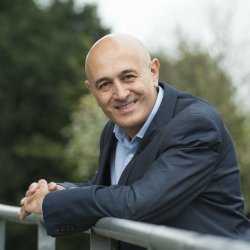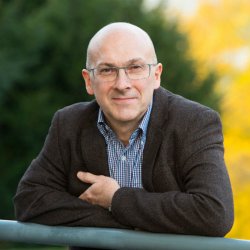Non-Markovian open quantum systems
This PhD studentship is in theoretical quantum physics and the project is part of a larger research effort in the field of open quantum systems.
Start date
1 October 2022Duration
3 yearsApplication deadline
Funding source
University of SurreyFunding information
Full UK tuition fees and a tax-free stipend at £15,609 p.a. This studentship may be available with partial funding for overseas fees for exceptional applicants. However, funding for overseas students is limited and applicants are encouraged to find suitable funding themselves.
About
Over the past few years, evidence has accumulated suggesting that certain atomic and molecular processes inside living cells depend on quantum effects in a crucial way. This has led to the birth of the new interdisciplinary field of quantum biology to investigate how living cells are capable of exhibiting and utilising nontrivial quantum mechanical properties, such as coherence, tunnelling and entanglement. This is despite living cells being at temperatures where thermodynamic processes would be expected to dominate over quantum effects due to decoherence effects.
An open quantum system approach provides the ideal framework for studying how a quantum system interacts with its surroundings at finite temperature. This is currently of fundamental interest beyond its proposed application in quantum biology. For it has important repercussions on foundational problems in physics, such as the process of decoherence and the so-called quantum measurement problem. There have been many approaches to the study of open quantum systems, but the richness of the ensuing dynamics is still not fully understood. This project will involve the continuation of the research effort by the Surrey group to extend standard Markovian (Caldeira-Leggett) models of open quantum system dynamics into the non-Markovian regime in order to incorporate memory effects in the environment, the role of noise/stochasticity due to unique structure and dynamics of the cellular environment, and to explore nature of decoherence, particularly in a biological setting.
[1] Jim Al-Khalili and Johnjoe McFadden, Life on the Edge: The Coming of Age of Quantum Biology, Transworld (Bantam Press), London (2014).
[2] S. Lally, N. Werren, J. Al-Khalili, and A. Rocco, Master equation for non-Markovian quantum Brownian motion: The emergence of lateral coherences, Phys. Rev. A105, 012209 (2022)
[3] L. Slocombe, M. Sacchi, J. Al-Khalili, An Open Quantum Systems approach to proton tunnelling in DNA, submitted to Comm. Phys. (arXiv preprint arXiv:2110.00113)
Related links
Open quantum systems in quantum biologyEligibility criteria
Applicants need to hold or will obtain a first-class Honours degree in Physics (MPhys/MSci encouraged) or a 2.1 alongside a Masters in physics at Distinction level.
English language requirements
IELTS minimum 6.5 or above (or equivalent), with no sub-test score below 6.
How to apply
Applications should be submitted via the Physics PhD programme page on the "Apply" tab. Please clearly state the studentship title and supervisor on your application.
Studentship FAQs
Read our studentship FAQs to find out more about applying and funding.
Application deadline
Contact details
Research
Research group: Quantum Foundations Centre

Studentships at Surrey
We have a wide range of studentship opportunities available.

